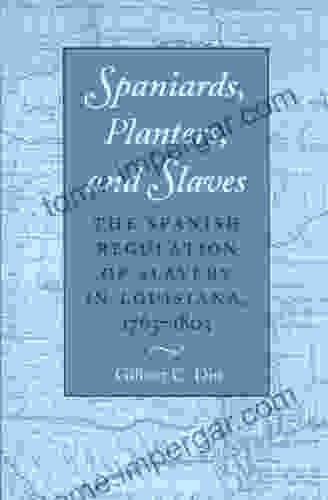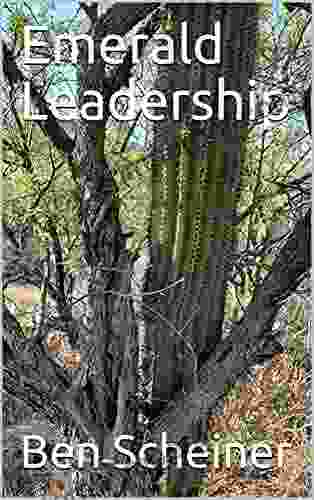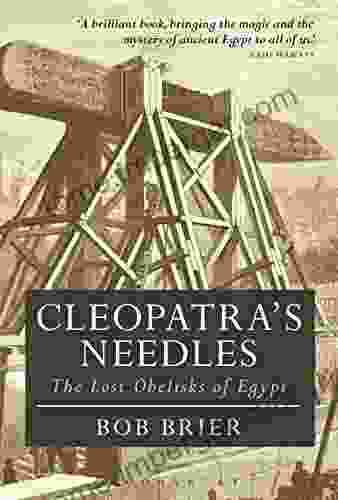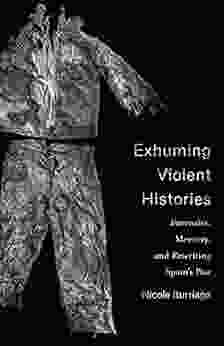Forensic Memory and Rewriting Spain's Past: Uncovering the Unseen

: The Power of Forensic Memory
Forensic memory, an emerging field at the intersection of history, psychology, and law, has revolutionized our understanding of the past. It employs scientific methodologies to recover and analyze memories, casting new light on historical events and challenging traditional narratives. In Spain, forensic memory has played a crucial role in rewriting the country's troubled past, shedding light on forgotten victims and complexities.
4 out of 5
| Language | : | English |
| File size | : | 11913 KB |
| Text-to-Speech | : | Enabled |
| Screen Reader | : | Supported |
| Enhanced typesetting | : | Enabled |
| Word Wise | : | Enabled |
| Print length | : | 261 pages |
Memory Wars and the Search for Truth
Spain's history is marked by periods of conflict, repression, and silence. The Spanish Civil War (1936-1939) and the subsequent Francoist dictatorship (1939-1975) left deep wounds in the nation's collective memory. During this time, thousands of people were disappeared, tortured, or executed, their stories largely untold.
After Franco's death in 1975, Spain embarked on a transition to democracy, but the legacy of the past remained a source of deep division. The government implemented a policy of "historical reconciliations," aimed at fostering unity and moving forward. However, this approach often involved silencing or downplaying the crimes committed during the Franco era.
The Rise of Forensic Memory
In the 2000s, a new generation of historians, activists, and forensic experts emerged, determined to challenge the official narratives. They employed forensic techniques to uncover lost memories and physical evidence, giving voice to the victims of the past.
Forensic studies have played a key role in identifying and exhuming mass graves, reconstructing events, and providing scientific evidence of torture and abuse. These findings have challenged the long-held belief that the past should be forgotten and have forced Spain to confront its own history.
Forensic Memory in Action: Exhumations and the Recovery of Identity
One of the most powerful applications of forensic memory in Spain has been the excavation and exhumation of mass graves. These sites contain the remains of victims of political violence and repression, many of whom were disappeared during the Civil War and the Francoist era.
Forensic anthropologists and archaeologists have used cutting-edge techniques to identify the remains, determine the cause of death, and piece together the events that led to the victims' deaths. This process has not only provided closure for families but has also contributed to a more accurate and comprehensive understanding of Spain's past.
Forensic Memory and Transitional Justice
Forensic memory has become an essential tool in transitional justice processes, which aim to address past human rights violations and promote reconciliation. In Spain, forensic investigations have played a crucial role in uncovering the truth about the Francoist dictatorship, holding perpetrators accountable, and providing reparations to victims.
The forensic evidence gathered through exhumations, witness testimonies, and archival research has contributed to legal proceedings, the establishment of truth commissions, and the creation of memorials. This process has helped to break the cycle of impunity and promote a culture of accountability.
Challenges and Controversies
While forensic memory has made significant contributions to rewriting Spain's past, it has also faced challenges and controversies. Some have questioned the reliability of recovered memories or the use of scientific techniques in historical research.
Moreover, the exhumation of mass graves has been a painful process for some families, who may prefer to let the past rest. Additionally, the reexamination of Spain's history has led to political tensions and debates about the nature of the past and the role of victimhood.
: Forensic Memory and the Future of Spain
Forensic memory has emerged as a powerful force in rewriting Spain's past, shedding light on forgotten victims and challenging official narratives. Through the recovery and analysis of memories, forensic studies have contributed to a more accurate and inclusive understanding of the country's history.
While challenges and controversies remain, forensic memory continues to play a vital role in transitional justice processes and in fostering a culture of accountability. It provides a means of healing, reconciliation, and a more just future for Spain and other societies grappling with their past.
4 out of 5
| Language | : | English |
| File size | : | 11913 KB |
| Text-to-Speech | : | Enabled |
| Screen Reader | : | Supported |
| Enhanced typesetting | : | Enabled |
| Word Wise | : | Enabled |
| Print length | : | 261 pages |
Do you want to contribute by writing guest posts on this blog?
Please contact us and send us a resume of previous articles that you have written.
 Book
Book Novel
Novel Page
Page Chapter
Chapter Text
Text Story
Story Genre
Genre Reader
Reader Library
Library Paperback
Paperback E-book
E-book Magazine
Magazine Newspaper
Newspaper Paragraph
Paragraph Sentence
Sentence Bookmark
Bookmark Shelf
Shelf Glossary
Glossary Bibliography
Bibliography Foreword
Foreword Preface
Preface Synopsis
Synopsis Annotation
Annotation Footnote
Footnote Manuscript
Manuscript Scroll
Scroll Codex
Codex Tome
Tome Bestseller
Bestseller Classics
Classics Library card
Library card Narrative
Narrative Biography
Biography Autobiography
Autobiography Memoir
Memoir Reference
Reference Encyclopedia
Encyclopedia Ben Collins
Ben Collins Barry K Herman
Barry K Herman Christian Tschumi
Christian Tschumi Mogens Rubinstein
Mogens Rubinstein Ben Shapiro
Ben Shapiro Bill Nason
Bill Nason John N Powers
John N Powers Bill Russell
Bill Russell Bill Hurter
Bill Hurter Bernaz Diaz Del Castillo
Bernaz Diaz Del Castillo Joan Mellen
Joan Mellen Beth Gorr
Beth Gorr Barbara F Walter
Barbara F Walter Bette Marshall
Bette Marshall Barbara Watterson
Barbara Watterson Barbara Alice Mann
Barbara Alice Mann Beth Gilbertsen
Beth Gilbertsen Bertice Berry
Bertice Berry Bastien Darrow
Bastien Darrow Chip Carter
Chip Carter
Light bulbAdvertise smarter! Our strategic ad space ensures maximum exposure. Reserve your spot today!

 Bruce SnyderDelve into the Enigmatic Irish Military Legacy: The Irish Amateur Military...
Bruce SnyderDelve into the Enigmatic Irish Military Legacy: The Irish Amateur Military...
 Julio Ramón RibeyroSpaniards, Planters, and Slaves: A Historical Tapestry of Colonialism and...
Julio Ramón RibeyroSpaniards, Planters, and Slaves: A Historical Tapestry of Colonialism and...
 Jesse BellDiscover the Enchanting World of James Herrick: A Poetic Masterpiece for the...
Jesse BellDiscover the Enchanting World of James Herrick: A Poetic Masterpiece for the...
 Tennessee WilliamsUnlock Your Leadership Potential with Emerald Leadership by Ben Scheiner
Tennessee WilliamsUnlock Your Leadership Potential with Emerald Leadership by Ben Scheiner Osamu DazaiFollow ·4.2k
Osamu DazaiFollow ·4.2k Javier BellFollow ·12.3k
Javier BellFollow ·12.3k Dustin RichardsonFollow ·13.3k
Dustin RichardsonFollow ·13.3k Calvin FisherFollow ·18.8k
Calvin FisherFollow ·18.8k Billy PetersonFollow ·16.1k
Billy PetersonFollow ·16.1k Joseph ConradFollow ·3.5k
Joseph ConradFollow ·3.5k Connor MitchellFollow ·9.5k
Connor MitchellFollow ·9.5k Garrett PowellFollow ·16.4k
Garrett PowellFollow ·16.4k

 Edison Mitchell
Edison MitchellFrench Strategy and Operations in the Great War
An In-Depth Examination of Military Genius ...

 Harvey Hughes
Harvey HughesArts In Health: Designing And Researching Interventions
Delving into the...

 Walt Whitman
Walt WhitmanHealing and Hope for Those with Empty Arms
A Comprehensive Guide for Grieving...

 DeShawn Powell
DeShawn PowellUniversity of Maine Ice Hockey: A Legacy of Frozen Glory
Nestled in the heart of Maine, a state...

 George Hayes
George HayesControl For Aluminum Production And Other Processing...
In today's competitive manufacturing...

 Ben Hayes
Ben HayesThe Lost Obelisks Of Egypt: A Journey into the Depths of...
: The Enduring Allure of Egypt's Ancient...
4 out of 5
| Language | : | English |
| File size | : | 11913 KB |
| Text-to-Speech | : | Enabled |
| Screen Reader | : | Supported |
| Enhanced typesetting | : | Enabled |
| Word Wise | : | Enabled |
| Print length | : | 261 pages |




